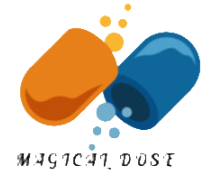Introduction
In recent years, there has been a noticeable rise in the popularity of skin supplements. Marketed as a convenient way to achieve glowing, youthful skin, these products appeal to a broad audience seeking to enhance their skin health from within. With promises of clearer skin, reduced signs of aging, and overall improved complexion, it is no wonder why more people are incorporating these supplements into their daily routines.
The allure of achieving radiant skin through a simple pill is compelling. However, this growing trend raises important questions about the efficacy and safety of skin supplements. Are these products truly beneficial, or are there undisclosed risks that consumers need to be aware of? The main objective of this blog post is to delve into these concerns and uncover the hidden dangers that may accompany the use of skin supplements.
As the market for skin supplements continues to expand, it is crucial to understand what ingredients these products contain and how they might interact with the body. While many supplements boast natural ingredients, this does not automatically guarantee their safety. The regulation of dietary supplements is notably less stringent than that of pharmaceuticals, which means that many products may not have undergone rigorous testing.
Moreover, individuals often overlook the potential for adverse interactions between skin supplements and other medications they might be taking. This can lead to unintended side effects, potentially compromising one’s overall health. Given these considerations, this blog post aims to equip readers with the knowledge they need to make informed decisions about incorporating skin supplements into their beauty regimen.
By exploring the potential hidden dangers of skin supplements, we hope to foster a balanced understanding of their benefits and risks. Join us as we navigate this important topic, shedding light on the crucial information that every consumer needs to know.
Understanding Skin Supplements

Skin supplements are dietary products designed to improve the health and appearance of your skin from the inside out. These products commonly include vitamins, minerals, collagen, and a variety of herbal compounds. The fundamental idea behind skin supplements is that, by providing the body with essential micronutrients and other beneficial substances, one can enhance skin function and appearance in ways that topical products might not achieve.
The most common types of skin supplements include:
Vitamins: Essential vitamins such as Vitamin A (retinol), Vitamin C, and Vitamin E are frequently found in these supplements. They claim to improve skin health by acting as antioxidants, boosting collagen production, and protecting the skin from environmental damage.
Minerals: Zinc and selenium are popular minerals in skin supplements. These micronutrients are known for their roles in reducing inflammation, aiding in wound healing, and protecting the skin from oxidative stress.
Collagen: Collagen supplements have gained immense popularity due to their purported benefits in enhancing skin elasticity, hydration, and reducing the appearance of wrinkles. Collagen is a protein that our bodies naturally produce less of as we age, leading to sagging and aging skin.
Herbal Supplements: Herbal extracts such as aloe vera, green tea, and turmeric are often included in skin supplements for their anti-inflammatory and antioxidant properties. These natural ingredients are believed to soothe the skin and promote a healthier complexion.
Proponents of skin supplements argue that these products can offer targeted benefits that are otherwise hard to achieve through diet and topical skincare alone. Improvement in skin elasticity, enhanced hydration, and anti-aging effects are among the primary benefits that these supplements claim to provide. However, understanding the hidden dangers associated with the long-term use of skin supplements is crucial, considering the multitude of factors that can affect their efficacy and safety.
The Lack of Regulation
The regulatory framework governing skin supplements significantly differs from that of pharmaceuticals, which raises pressing concerns about their safety and efficacy. Unlike prescription medications subjected to stringent testing and quality control measures by agencies like the Food and Drug Administration (FDA), dietary supplements, including those aimed at improving skin health, occupy a regulatory gray zone. This disparity stems from the Dietary Supplement Health and Education Act (DSHEA) of 1994, which classifies these products under the category of food rather than drugs. Consequently, they bypass many of the rigorous testing protocols required for pharmaceuticals.

One of the hidden dangers associated with this lack of regulation is the potential variability in the quality and composition of skin supplements. Manufacturers are not obligated to prove the efficacy or safety of their products before they hit the market. Instead, the responsibility falls on federal authorities to identify and remove harmful products post-market, which often occurs only after consumer complaints or adverse events. This reactive approach can expose consumers to significant risks, including allergic reactions, toxicity, or interactions with other medications.
Furthermore, the lack of regulation can lead to misleading marketing claims. Without rigorous oversight, some companies can make exaggerated or false statements about the benefits of their skin supplements, further complicating a consumer’s ability to make informed decisions. For instance, a product may claim to “reduce wrinkles” or “clear acne” without any scientific evidence to back those assertions. Such claims can be particularly perilous when individuals forgo proven medical treatments in favor of unverified supplements.
In essence, understanding the regulatory landscape surrounding skin supplements is crucial for anyone considering their use. The lack of stringent oversight not only masks potential hidden dangers but also emphasizes the need for consumers to exercise caution, conduct thorough research, and consult healthcare professionals before incorporating these products into their skincare regimen.
Potential Side Effects and Health Risks
The growing popularity of skin supplements has raised concerns regarding their safety. While these supplements often promise improved skin health, it’s crucial to be aware of the potential side effects and health risks they may pose. One common issue is allergic reactions, which can manifest in symptoms such as itching, rashes, or swelling. These reactions often occur due to ingredients like herbs, minerals, or preservatives that some individuals might find irritating or hazardous.
Another significant concern is the impact on the digestive system. Skin supplements may cause nausea, diarrhea, and stomach cramps. This is often due to high concentrations of certain vitamins or minerals. For instance, overconsumption of Vitamin A can lead to toxicity, symptoms of which include dizziness, nausea, and even liver damage in severe cases.
Furthermore, interactions between skin supplements and prescribed medications can lead to unforeseen complications. Skin supplements containing biotin, for instance, can interfere with certain lab tests, leading to misleading results. Coupled with prescribed medication, the efficacy of the medication can be altered, making it less effective and potentially dangerous for the user.
More severe health risks stem from contaminants in poorly manufactured products. Some skin supplements have been found to contain harmful substances such as heavy metals, pesticides, or other toxic compounds. These contaminants can accumulate in the body over time, leading to serious health issues such as organ damage.
It is also important to recognize the dangers associated with excessive intake of vitamins and minerals. Overdosing on certain nutrients, such as Vitamin D or E, can result in toxicity. Symptoms might range from minor issues like headaches and fatigue to more serious conditions such as kidney damage or blood clotting disorders.
In understanding these risk factors, it becomes clear that consumers must exercise caution when choosing to incorporate skin supplements into their daily routines. It’s advisable to consult with healthcare professionals to ensure the safe and effective use of these products.
Interactions with Medications

When considering the use of skin supplements, it is crucial to be aware of potential interactions with prescription or over-the-counter medications. Skin supplements, often comprising vitamins, minerals, and herbal ingredients, may interfere with the efficacy of conventional medications. This interaction can either diminish the effectiveness of the treatments or result in adverse side effects.
For instance, combining certain skin supplements with blood-thinning medications can elevate the risk of bleeding. Supplements containing high levels of Vitamin E or fish oil, well-known for their anticoagulant properties, can amplify the effect of blood-thinning drugs like Warfarin, leading to potential complications. Similarly, supplements with St. John’s Wort, commonly employed for its skin benefits, may decrease the effectiveness of birth control pills or antidepressants by accelerating their breakdown in the liver.
The use of supplements containing high doses of specific vitamins, such as Vitamin A, can adversely affect liver function when combined with medications that already impact the liver. This raises concerns particularly for individuals who are on long-term medication regimens or those with pre-existing liver conditions. Unanticipated interactions could provoke severe health issues, rendering the need for cautious consideration and professional consultation indispensable.
Notably, even over-the-counter medications and supplements should not be exempt from scrutiny. Over-the-counter solutions are often perceived as benign; however, their combination with skin supplements can produce unanticipated results. For instance, combining non-steroidal anti-inflammatory drugs (NSAIDs) with particular herbal skin supplements may exacerbate gastrointestinal irritation or ulceration.
Therefore, the interplay between skin supplements and medications underscores the importance of a proactive approach to one’s health regimen. Consulting with healthcare professionals before introducing new supplements can provide crucial insights into any potential interactions and ensure the safe and effective management of one’s overall health. Pharmacists and physicians can offer personalized advice based on individual health conditions and current medications, thereby mitigating the hidden dangers associated with these combinations.
The Problem with Overconsumption
In the quest for flawless skin, many individuals turn to supplements, believing that more will yield better results. However, the overconsumption of supplements is fraught with hidden dangers. One major risk associated with excessive intake is hypervitaminosis, a condition caused by excessive levels of vitamins in the body. Vitamins A, D, E, and K are fat-soluble and can accumulate to toxic levels, leading to severe health issues. For instance, hypervitaminosis A can result in liver damage, while excess vitamin D can cause calcium buildup, potentially damaging the kidneys and heart.
Another concern is the imbalance of essential minerals. The body requires a precise balance of minerals such as calcium, magnesium, zinc, and iron to function optimally. Overconsuming supplements can disrupt this balance, leading to conditions such as hypercalcemia, which can weaken bones, create kidney stones, and interfere with heart and brain functions. Similarly, too much zinc can interfere with the absorption of copper, leading to deficiencies that impact various bodily functions including immune response and nervous system health.
Long-term health consequences of supplement overuse can be severe. Continuous intake of high doses of certain supplements has been linked to an increased risk of chronic diseases. Excessive use of antioxidants like beta-carotene, for example, has been associated with a heightened risk of lung cancer in smokers. Moreover, an overload of isolated nutrients can potentially undermine the natural, synergistic relationship they share with other dietary components, effectively diminishing their positive impact on health.
It is crucial to emphasize that more isn’t always better when it comes to supplements. Adhering to recommended dosages is vital for avoiding these hidden dangers and ensuring the safe and effective use of skin supplements. Consulting with healthcare professionals before beginning any supplement regimen can help tailor intake to individual needs, thereby minimizing risks and optimizing benefits.
Natural Alternatives to Supplements

While the allure of skin supplements can be strong, it is essential to consider natural and potentially safer alternatives. Making dietary changes, adapting lifestyle habits, and utilizing topical treatments can provide significant benefits for skin health without the risks associated with ingesting supplements. These modifications can optimize your overall well-being, offering a holistic approach to skincare.
Firstly, dietary changes are foundational for promoting healthy skin. Consuming a balanced diet rich in fruits, vegetables, whole grains, lean proteins, and healthy fats provides a variety of essential nutrients required for maintaining skin health. Foods like berries, nuts, fatty fish, and leafy greens are excellent sources of antioxidants, omega-3 fatty acids, vitamins, and minerals. These nutrients play a crucial role in repairing skin cells, boosting collagen production, and protecting against environmental damage, offering a more natural pathway to vibrant skin.
In addition to dietary adjustments, lifestyle changes can profoundly impact skin condition. Regular exercise improves circulation, delivering oxygen and nutrients to the skin. Adequate hydration is equally important; drinking plenty of water helps maintain skin moisture and elasticity. Further, incorporating stress-relief practices such as meditation, yoga, or adequate sleep can reduce the production of stress hormones that may contribute to skin issues like acne or eczema.
Topical treatments offer another avenue to support skin health naturally. Ingredients derived from plants, such as aloe vera, chamomile, and green tea extract, are known for their soothing and anti-inflammatory properties. Using skincare products rich in natural oils, like coconut oil, jojoba oil, and shea butter, can provide hydration and nourishment directly to the skin. These topical applications allow for targeted treatment without the systemic effects that oral supplements might have.
Lastly, obtaining nutrients from whole foods rather than supplements ensures a well-rounded intake of vitamins, minerals, and antioxidants. Whole foods contain fiber, phytochemicals, and other compounds that work synergistically to enhance nutrient absorption and utilization, offering maximum health benefits and reducing the risk of the hidden dangers often associated with synthetic supplements.
Conclusion and Recommendations
The intricate world of skin supplements presents an array of benefits that are often celebrated in beauty routines. However, as underscored throughout this blog post, there are hidden dangers that consumers must be aware of. The allure of achieving flawless skin through supplementation can, unfortunately, come with unforeseen risks such as unregulated ingredients, potential interactions with other medications, and the misconception that these products are a panacea for all skin issues. Recognizing these dangers is vital to making informed decisions about whether or not to include these supplements in your regimen.
To manage these risks effectively, it is imperative to approach skin supplements with caution. Recommendations from healthcare providers, such as dermatologists or nutritionists, can offer invaluable guidance tailored to individual health needs. These experts can help assess the safety and suitability of specific supplements, ensuring they do not adversely interact with other medications or underlying health conditions.
Moreover, it is beneficial to consider natural alternatives that promote skin health from within. A balanced diet rich in vitamins, minerals, and antioxidants can often achieve similar, if not superior, results to supplements without the associated risks. Foods like leafy greens, berries, nuts, and seeds are potent allies in maintaining skin vitality. Alongside this, a holistic approach encompassing proper hydration, adequate sleep, regular exercise, and suitable skincare routines can greatly enhance skin health.
Incorporating these practical steps into daily life fosters a nurturing environment for the skin, potentially negating the need for supplementary interventions. As we navigate the complex landscape of skin supplements, informed choices and professional consultations stand as our best defense against the hidden dangers that lurk within this realm. Empower yourself with knowledge and consider all variables before embarking on a new skincare supplement journey. Your skin, and overall health, will thank you.



